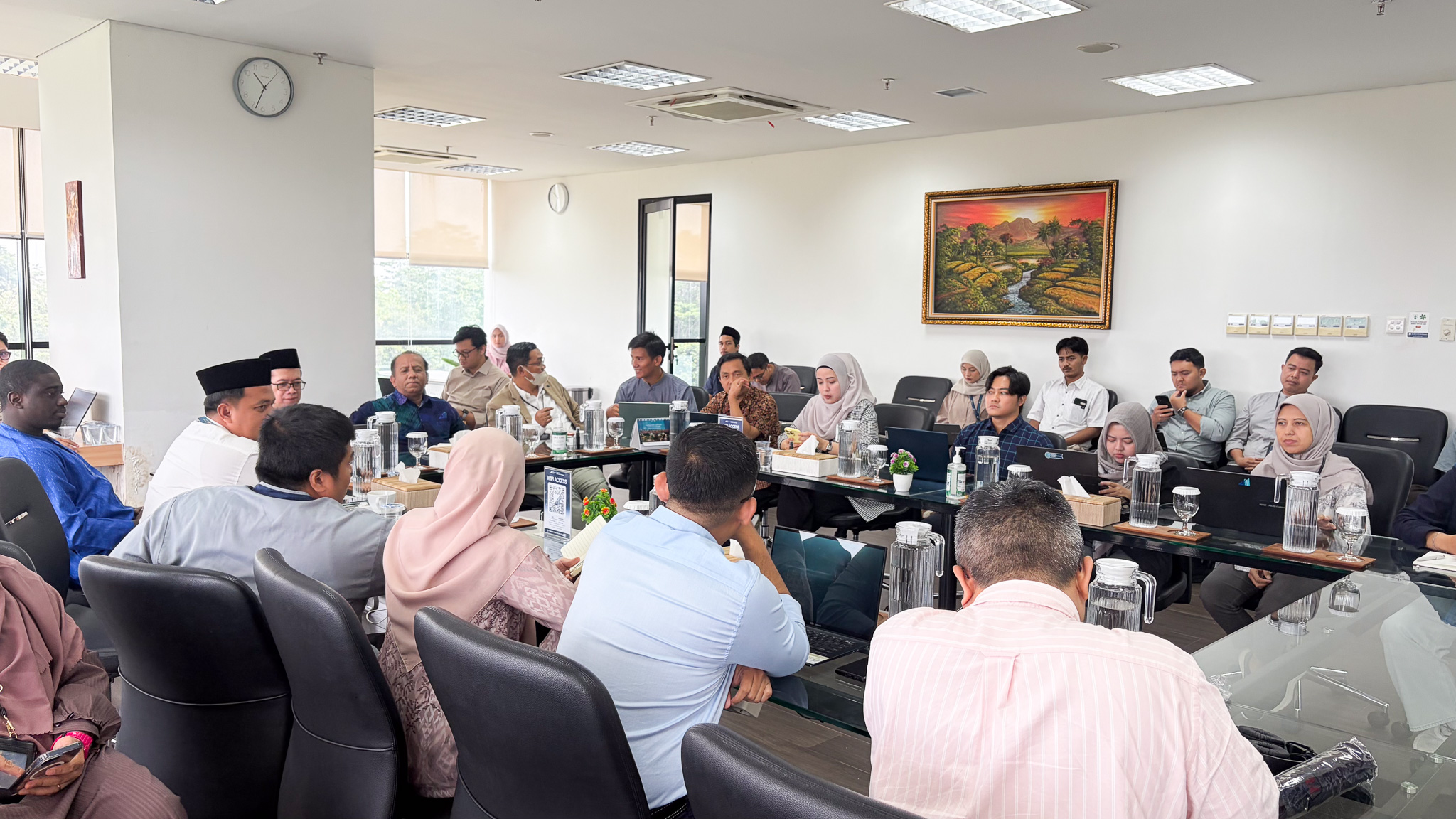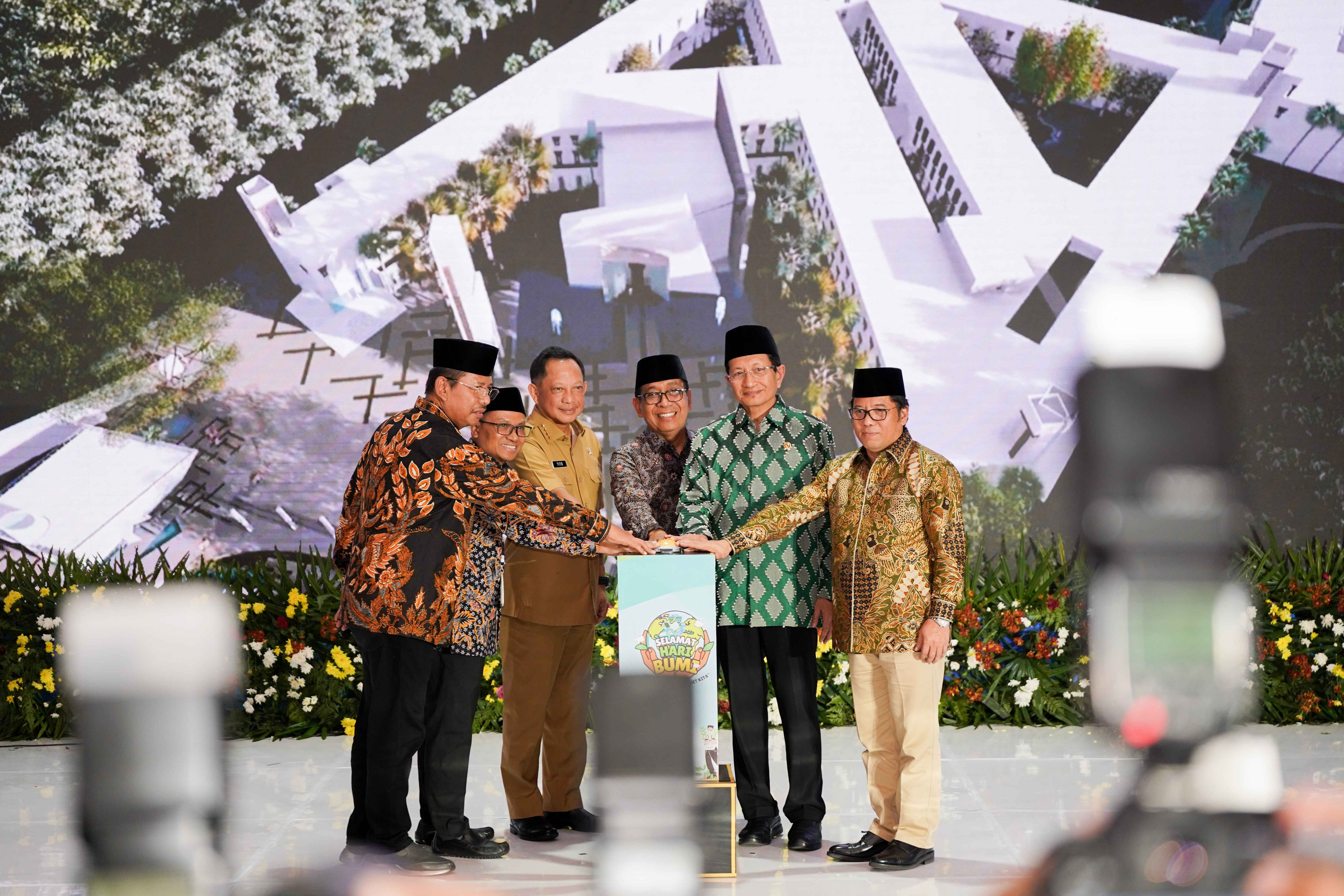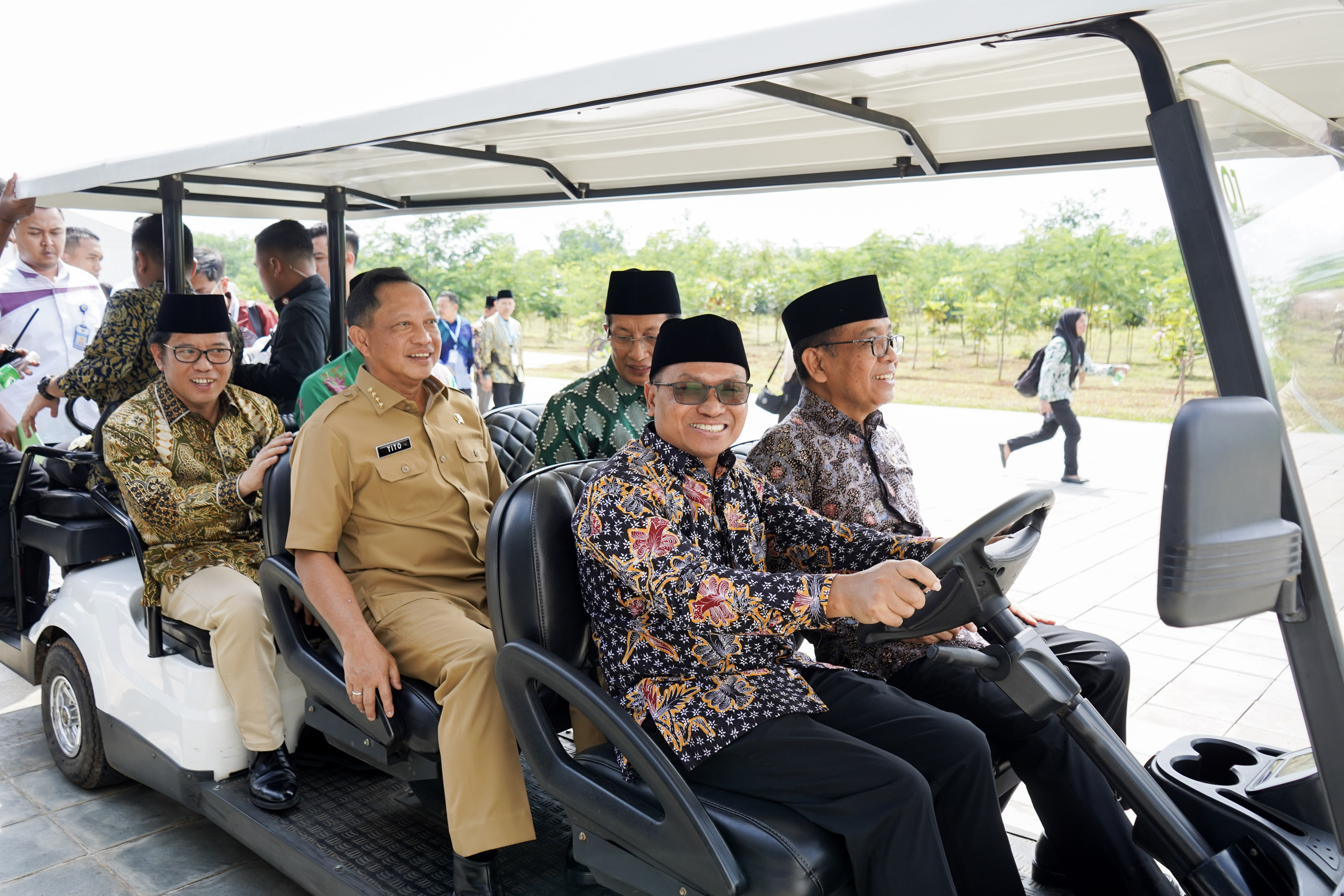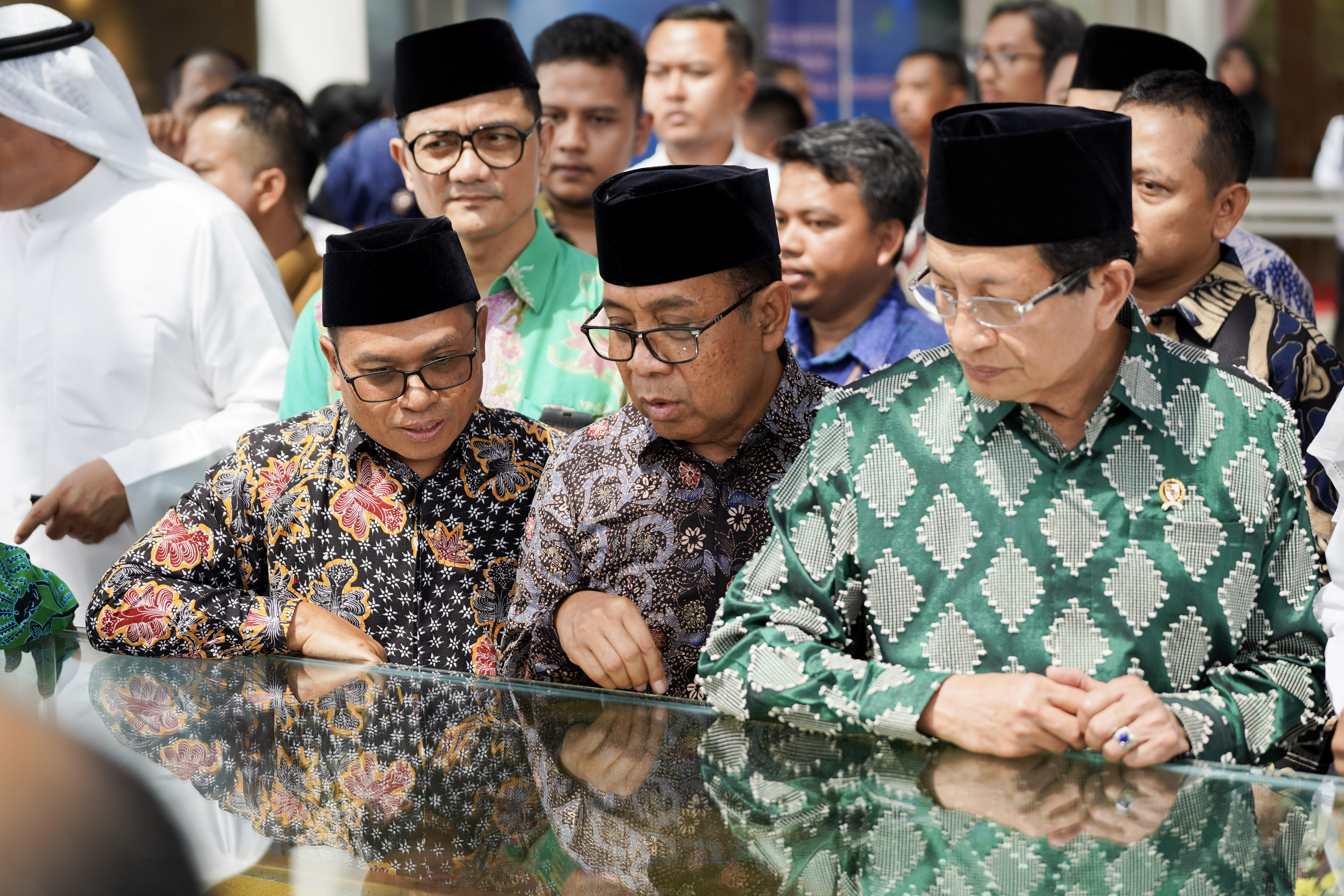

Depok, April 22, 2025 — Universitas Islam Internasional Indonesia (UIII) stood at the forefront of a nationwide environmental initiative as it hosted the official launch of the One Million Matoa Trees National Movement, held simultaneously across Indonesia in commemoration of Earth Day 2025. The initiative is a flagship program of the Ministry of Religious Affairs of the Republic of Indonesia, as part of its national eco-theology agenda that integrates religious values with environmental stewardship.
The launch at UIII was marked by the symbolic planting of ten matoa trees around the university’s Rectorate Building. The event was attended by several prominent figures, including Minister of Religious Affairs Prof. Dr. Nasaruddin Umar, Coordinating Minister for Human Development and Cultural Affairs Prof. Dr. Pratikno, Minister of Home Affairs Commissioner General (Ret.) Drs. H. Tito Karnavian, Ph.D, and Secretary General of the Ministry of Religious Affairs Prof. Dr. Phil. Kamaruddin Amin. Representatives from the Embassies of the United Arab Emirates and Kuwait were also present.

Also attending the event were Prof. Dr. Suyitno, Director General of Islamic Education at the Ministry of Religious Affairs, accompanied by his secretary, Prof. Dr. M. Arskal Salim GP, M.Ag., and Prof. Sahiron Syamsuddin, Director of Higher Education. Also present was Sulaiman Umar Siddiq, Deputy Minister of Forestry; Maj. Gen. Mohammad Naudi Nurdika, representing the Commander of the Indonesian National Armed Forces (TNI); Dr. Fadlul Imansyah, Chief Executive of the Hajj Financial Management Agency (BPKH); Supian Suri, Deputy Mayor of Depok; and Ahmad Haikal Hasan, Head of the Halal Product Assurance Organizing Agency (BPJPH).
As the launching event, UIII reaffirmed its role not only as an academic institution but also as a living laboratory for sustainability inspired by Islamic values. In his speech, Prof. Dr. Kamaruddin Amin emphasized that the movement embodies a concrete expression of eco-theology—a paradigm that blends spiritual principles with environmental awareness.
“This movement is a tangible manifestation of the Ministry of Religious Affairs’ commitment to implementing eco-theology, which integrates religious values with environmental conservation,” said Prof. Kamaruddin.
The matoa tree, native to Papua, was selected for its ecological, economic, and symbolic value, representing Indonesia’s rich diversity. The movement involves all units under the Ministry of Religious Affairs—ranging from madrasahs and Islamic boarding schools to higher education institutions and Hajj dormitories—reaching all 34 provinces with support from over 10,000 religious institutions.

Minister of Religious Affairs Prof. Dr. Nasaruddin Umar noted that the initiative is not merely symbolic, but a strategic effort to position Indonesia as a global hub for modern Islamic science and environmentally conscious civilization.
“We hope that institutions like UIII will become nurseries of great Islamic ideas and environmental commitment, in the tradition of classical Islamic intellectualism,” he remarked during his address.
UIII Rector Prof. Dr. Jamhari affirmed the university’s commitment to becoming a living laboratory for such integration. “UIII is honored to host this historic launch. Our campus will not just educate minds, but cultivate ecological consciousness inspired by Islamic teachings,” he remarked.
Through this Earth Day momentum, UIII solidifies its commitment as a new axis in advancing Islamic eco-theology, which not only emphasizes knowledge but also a deep spiritual responsibility to care for the Earth as a divine trust. As the matoa trees took root in UIII’s soil, so too did a new national commitment, to green the nation not only with trees but with a renewed theological understanding of our role as stewards of the Earth.
Universitas Islam Internasional Indonesia